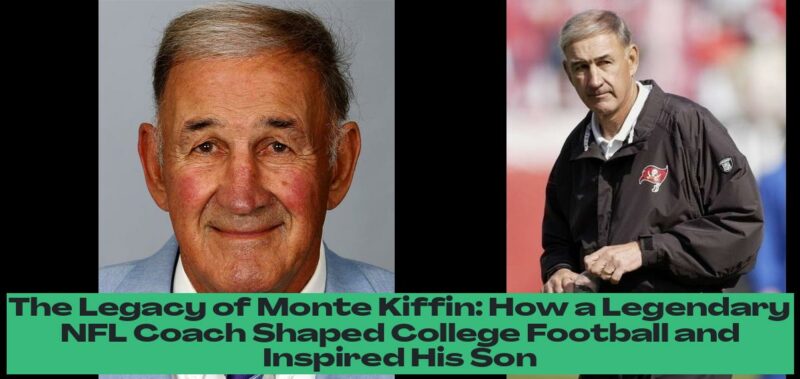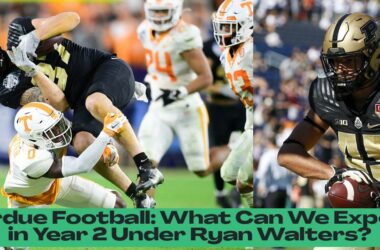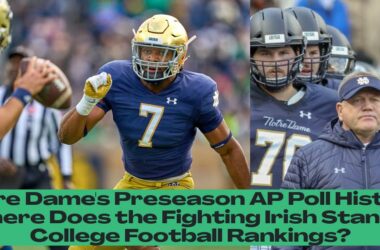Remembering Monte Kiffin: Legendary NFL assistant, father of Lane Kiffin, made impact in college football
Monte Kiffin, a name synonymous with defensive prowess and innovation, left an indelible mark on the landscape of both collegiate and professional football. While his contributions to the Tampa Bay Buccaneers, particularly the creation of the “Tampa 2” defense, garnered widespread acclaim, his roots and a significant portion of his impact can be traced back to the realm of college football. Kiffin’s journey, intertwined with his son, Lane Kiffin, who also made a name for himself in the coaching ranks, is a testament to the power of family legacies and the enduring influence of a coaching dynasty.
Kiffin’s illustrious career began at the University of Nebraska, his alma mater. After graduating in 1963, he was selected in the 15th round of the 1964 NFL Draft by the Washington Redskins. However, his professional playing career was fleeting, as he bounced around the Continental Football League and the Canadian Football League before ultimately deciding to pursue coaching.
His coaching journey began under the tutelage of Bob Devaney, a legendary figure in Nebraska football. Devaney, a College Football Hall of Famer, recognized Kiffin’s potential and appointed him as a graduate assistant in 1966. This marked the commencement of a remarkable coaching career that spanned decades, etching Kiffin’s name in the annals of football history.
- Monte Kiffin, legendary NFL assistant coach, made a significant impact in college football with his defensive prowess and innovative strategies.
- Kiffin’s coaching journey began at the University of Nebraska under the guidance of Bob Devaney, where he quickly rose to prominence as the defensive coordinator.
- Known for creating the famous “Tampa 2” defense with the Tampa Bay Buccaneers, Kiffin’s roots in college football played a crucial role in shaping his coaching legacy.
- The partnership between Monte Kiffin and Bob Devaney led to unprecedented success at Nebraska, including four Big Eight titles and consecutive national championships in 1970 and 1971.
- The enduring influence of Monte Kiffin’s coaching dynasty is exemplified through his son, Lane Kiffin, who has also made a name for himself in the coaching ranks, highlighting the power of family legacies in football.
Making an impact at his alma mater
Kiffin’s rise at Nebraska was nothing short of meteoric. In 1969, he was promoted to defensive coordinator, a position he held with distinction for several years. Under his leadership, the Huskers’ defense became a force to be reckoned with. Working alongside Devaney, Kiffin orchestrated a period of unparalleled success, winning four Big Eight titles and consecutive national championships from 1970 to 1971.
The duo’s dominance on the gridiron was a testament to their strategic brilliance and unwavering commitment to excellence. Kiffin’s defensive schemes were innovative and effective, consistently challenging opposing offenses and shutting down their scoring threats. This period in Nebraska football was a golden era, marked by a relentless pursuit of victory and an unwavering commitment to the game.
When Devaney stepped down in 1972, he entrusted the reins of the program to Tom Osborne, who had served as offensive coordinator. Kiffin retained his position as defensive coordinator, continuing to contribute to the Huskers’ success. The duo, a formidable combination of offensive and defensive prowess, guided Nebraska through a period of sustained dominance.
From 1972 to 1976, Nebraska produced four consecutive nine-win seasons, a testament to the team’s consistency and Kiffin’s unwavering commitment to defensive excellence. Their legacy was further solidified by impressive bowl performances, including victories in the Cotton and Sugar Bowls. The 1972 season culminated in another Big Eight crown, adding another chapter to the rich tapestry of Nebraska’s football tradition.
Kiffin’s departure from Nebraska in 1977 marked the end of a remarkable chapter in his coaching career. He joined Lou Holtz’s inaugural staff at the University of Arkansas, embarking on a new adventure that would further solidify his reputation as a skilled defensive mind. This move marked the beginning of a period of transition and growth, as Kiffin sought to expand his coaching horizons and contribute to the success of a new program.
First coaching opportunity
In 1980, Kiffin was presented with his first head coaching opportunity at NC State. The Wolfpack, fresh off the departure of Bo Rein, who had accepted the head coaching position at LSU, were in search of a new leader. Kiffin stepped into a role previously held by Lou Holtz, who had left for Arkansas after a successful four-year stint at NC State.
Kiffin’s arrival at NC State was met with expectations, as the program had enjoyed a period of success under Holtz. However, Kiffin’s tenure at NC State was marked by mixed results. He led the Wolfpack to a pair of 6-5 seasons, sandwiched around a 4-7 campaign. Despite his best efforts, he was unable to replicate the success of his predecessors.
Despite the mixed results, Kiffin’s time at NC State was a valuable experience. It provided him with the opportunity to lead a program and make crucial decisions that would shape the team’s direction. He learned valuable lessons about managing a team, building relationships with players, and navigating the complexities of collegiate athletics.
Return to college ranks
After a lengthy and successful career in the NFL, Kiffin returned to the college ranks in 2009. His son, Lane Kiffin, had been appointed as the head coach at the University of Tennessee, and Monte joined his son’s staff as the defensive coordinator.
The Kiffins’ collaboration marked a new chapter in their shared passion for the game. Monte, with his years of experience and expertise, provided valuable guidance to Lane, who was navigating the challenges of leading his first major program. Their shared knowledge and understanding of the game created a formidable coaching duo.
When Lane departed for the University of Southern California after just one season at Tennessee, Monte followed his son, serving as assistant head coach. The Kiffins’ coaching partnership continued to flourish, as Monte’s defensive acumen complemented Lane’s offensive philosophy. Their shared vision and understanding of the game allowed them to create a cohesive and effective coaching staff.
Following their stint at USC, Monte returned to the NFL in 2013, serving as the defensive coordinator for the Dallas Cowboys. However, his bond with Lane remained strong, as he rejoined his son’s staff at Florida Atlantic University in 2017. This reunion marked a return to the college game for Monte, who was eager to support his son’s endeavors and contribute to the Owls’ success.
Honoring a coaching legacy
Monte Kiffin’s influence extended beyond the football field. He was a mentor and a father figure to his sons, Lane and Chris, both of whom followed in his footsteps and carved out successful careers in coaching. His impact on the game transcended generations, creating a coaching dynasty that left a lasting mark on the sport.
Kiffin’s legacy as a coach is rooted in his innovative defensive schemes, his unwavering commitment to excellence, and his enduring influence on his sons. His contributions to the game will continue to be celebrated for years to come, as his name remains synonymous with defensive prowess and strategic brilliance.
Monte Kiffin’s life was a testament to a lifelong passion for football. His unwavering dedication to the game, his commitment to coaching, and his influence on generations of players and coaches will forever be remembered. His legacy as a coach, a mentor, and a father will continue to inspire future generations of football enthusiasts.









